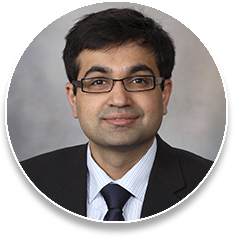
Translating Recent Research into Clinical Decisions for C. difficile: Selection of Therapy

In this text-based interview, Dr. Sahil Khanna will review recently published studies and data from national meetings that may impact selection of therapy for C. difficile and its recurrence. In addition to his own research, Dr. Khanna will review highlights from IDWeek 2017, ACG2017, and the International C. diff. Awareness Conference and Health EXPO. This is the fourth in a series of five CME activities on CDI.

Associate Professor of Medicine
Division of Gastroenterology and Hepatology
Mayo Clinic
Rochester, MN